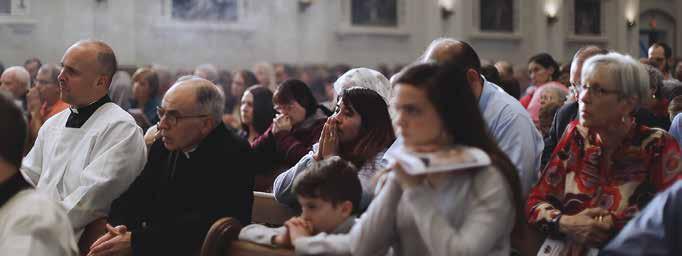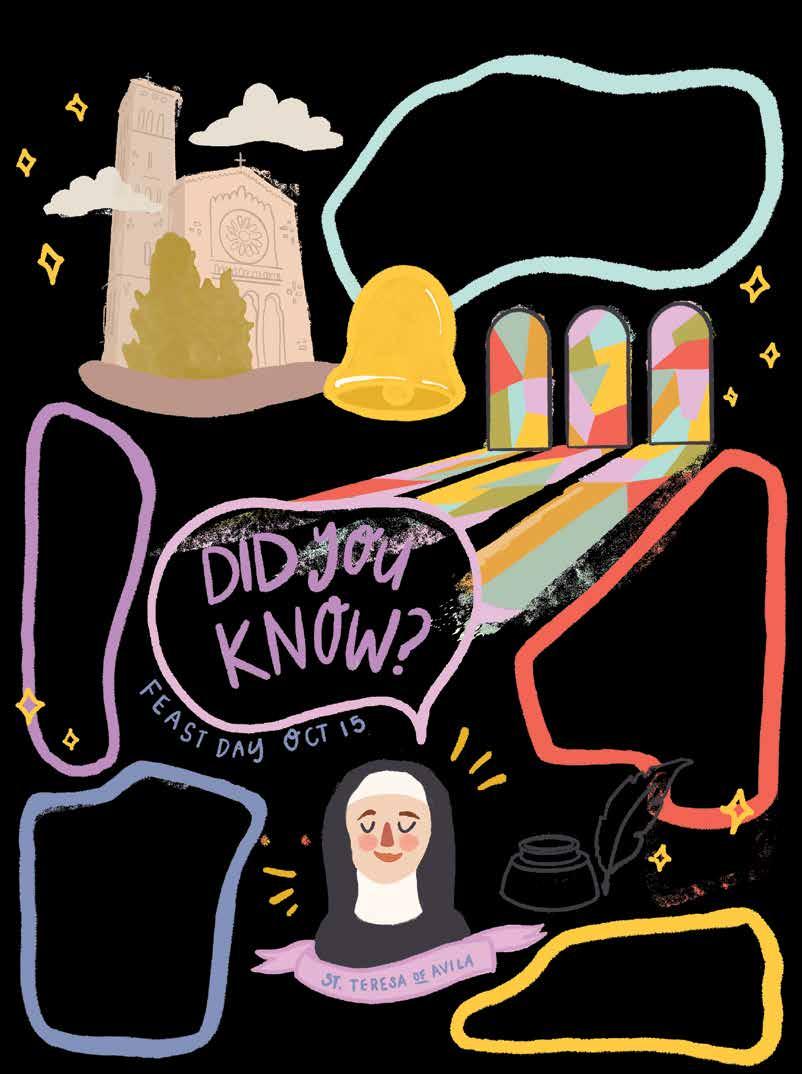B Y FAT HER RYAN T . RUIZ
The Case for Sunday After months of no public Masses, church doors are open again. But in the age of live-streaming Mass directly into homes, why should Catholics continue to attend Mass in person on Sundays?
March 8, 2020: the day on which Catholics of this archdiocese were last obliged to actively participate in the Sunday Eucharist. It remains a surreal reality to contemplate. For the first time in generations, the faithful were dispensed from an obligation that strikes to the heart of their identity as members of the domus Dei – the house of God. This unforeseen and lengthy Eucharistic fast has brought much suffering. However, the collective sense of salvation history, and the hope that arises from it, is too long for us to lose sight of God’s constant activity in the life of His people – even when clouds cover the sky, a common occurrence in southwest Ohio! Yet now as we have been able to gather once again at Mass, we face another interesting challenge. I imagine that for most, the importance of Sunday has never been in question. Sunday is the day of the Lord, after all, a day dedicated to His praise and glory. However, for others Sunday has sadly morphed into just another day of the week. Certainly this mentality is not the result of the current pandemic, as signs of Sunday’s atrophy have unfortunately grown stronger with each passing 8 | REFLECTION
year of each passing decade. Nevertheless, having been precluded from gathering on the day that St. Augustine termed “the Sacrament of Easter,” a day on which Christians from time immemorial exercised their baptismal priesthoods and celebrated the presence of the Risen Lord in their midst, has certainly not helped to stem the tide. Thus, perhaps even for us who have no doubts about Sunday’s significance, a reminder about its true identity and character could be of benefit. WHAT CASE, THEN, CAN BE MADE IN DEFENSE OF SUNDAY?
Well, to begin with the most obvious, it is the veritable “day of the Lord.” In 1998, St. John Paul II wrote an apostolic letter dedicated to the reality of Sunday in the life of the Church. In this letter the pope reflected on the theme of God’s rest as found in Genesis. When God rested from His work on the seventh day it was not a static form of rest, a kind of “divine inactivity;” rather, when God rested, He rested in order to gaze lovingly on all that He created so as to delight in it (Dies Domini 11). God’s rest is oriented towards communion with the creatures He made in His image and likeness, creatures
















